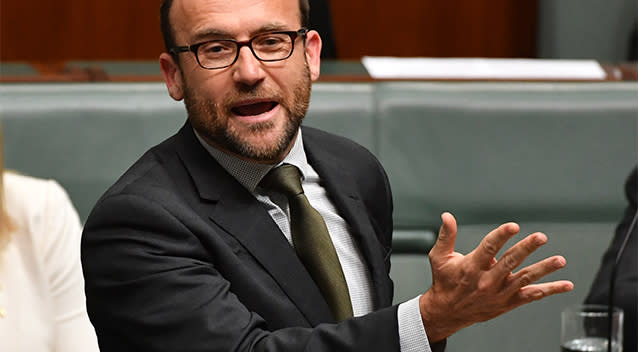'Unfair': Hundreds of thousands out of pocket as penalty rates cut

By –
Lunchrooms across Australia have been filled with collective groans today, as workers in retail, hospitality and fast-food jobs were told their Sunday and public holiday pay will be slashed.
More than 700,000 workers will be hit by the Fair Work Commission decision, which deemed Sunday rates will drop from 200 per cent to 150 for full time and part time retail workers and to 175 per cent for casuals.
Hospitality workers will be hit with cuts to their Sunday rates, dropping from 175 to 150 per cent.
PENALTY RATES EXPLAINED
Fast-food workers will also feel the pinch with Sunday rates dropping from 150 to 125 per cent for full-time and part-time staff, and from 200 to 175 per cent for casuals.
The Sunday penalty rates will still be higher than the rate for working a Saturday.
SPOTLIGHT WORKER’S STERN WORDS FOR PM: “Malcolm can you live on $600 a week”
Penalty rates cut: What it means for you:
Hospitality:
Sunday penalty rate for full-time and part-time employees reduced from 175 to 150 per cent. If you’re on the minimum wage, which is $17.70 per hour, you would have earned $248 in eight hours on a Sunday. Under the changes you will lose $35, earning $212.
There will be no change to the Sunday rate for casuals which will remain at 175 per cent.
Fast-food:
Sunday penalty rate reduced for level one employees from 150 to 125 per cent for full-time and part-time employees. So if you make $30 an hour you would have previously been paid $360 on an eight-hour Sunday shift, but that would now be reduced to $300, a loss of $60.
Penalties for casuals would e reduced from 175 to 150 per cent.
No change to Sunday penalty rates for level two and three employees in that award.
Retail:
Sunday penalty rate for full-time and part-time employees reduced from 200 to 150 per cent. That means that if you are making $20 an hour you would have earned $320, but will now make $240, a loss of $80.
Sunday rate for casuals will be reduced from 200 to 175 per cent.
Pharmacy:
Sunday rates for work performed between 7am and 9pm reduced from 200 to 150 per cent. So if you earn $17.70 an hour you would have earned $283, but now you will make $212, a loss of $71.
Sunday rate for casuals will be reduced from 200 to 175 per cent.
Public holidays:
Reduced public holiday penalty rates for hospitality and retail workers, but not for clubs.
Public holiday penalty rate for full-time and part-time employees will be reduced from 250 to 225 per cent.
The rate for casuals will be 250 per cent.
Prime Minister Malcolm Turnbull has indicated the government will accept the ruling.
However, the thousands of people affected by the cuts have said the decision is “unfair”.
Many took to Reddit, Facebook and Twitter to voice their anger.
“There was just a collective ‘get f***ed’ in our lunch room at Target,” a worker wrote after hearing the impact on retail employees.
Others were upset knowing they’d have to work more to make up the financial burden.
“Love that the answer to #penaltyrates cut is to ‘work more hours’ great,” another wrote on Twitter.
“So my regular Saturday & Sunday hrs each can grow to how much?” (sic).
Opposition leader Bill Shorten said on Thursday that Australian workers had been “kicked in the guts” following the decision.

The Labor leader said the party would “do everything in our power in the parliament and the courts to remedy this bad decision”.
He wrote on Twitter the Prime Minister had got what he had long wanted.
Australian Council of Trade Union president Ged Kearney said workers on minimum wages relied on weekend penalty rates to survive.
“This is a bad day for workers in this country,” she told reporters.

However, Australian Retailers Association executive director Russell Zimmerman said the decision would grow the sector.
“Reducing these rates from double time to time and a half, will increase retail growth nationally and reduce the unemployment rate in Australia,” he said.
Ms Kearney said that was a “complete furphy”.
On Twitter, Victorian Premier Daniel Andrews said people relied on penalty rates.
“I stand with all these workers, all these mums and dads, all these young people, every day of the week,” he wrote.
“The Liberals will try and wash their hands of this decision. Don’t let them. They’ve laid the groundwork for years.”
In Queensland the Palaszczuk government called on Prime Minister Malcolm Turnbull to intervene following the Fair Work Commission’s decision to slash Sunday penalty rates.
Ms Palaszczuk said the decision would leave some Queenslanders losing up to $6000 a year.
“Clearly the Turnbull government needs to intervene and put an end to these cuts to the take-home pay of Queensland workers,” Ms Palaszczuk said in a statement.
Greens MP Adam Bandt says his party will immediately move in parliament to stop the cuts coming into effect.
“This cut in penalty rates is a cut in people’s wages and it will hit young people especially hard… Coffees won’t get any cheaper on Sundays but young people will find it harder to pay the rent,” Mr Bandt said.
He called on Labor and the cross bench to support his party’s move to block the cuts.

The Fair Work Commission said the 25 per cent pay cuts would help businesses trade longer and offer more services on Sundays and public holidays.
“Generally speaking, for many workers, Sunday work has a higher level of disutility than Saturday work,” he said on Thursday.
“Though the extent of the disutility is much less than in times past.”
Mr Ross said the commission took evidence from business owners that Sunday penalty rates had led employers to restrict trading hours and reduce staff levels.
“The evidence also supports the proposition that a reduction in penalty rates is likely to lead to increased trading hours, an increase in the level and range of services offered on Sundays and public holidays and an increase in overall hours worked,” he said.
The cuts will come out of worker’s pay packets from July.

 Yahoo Finance
Yahoo Finance 
